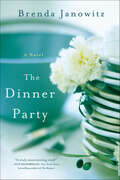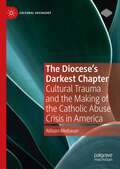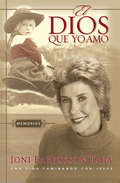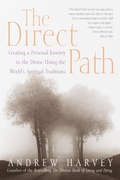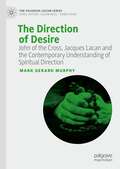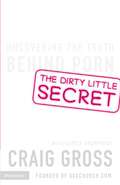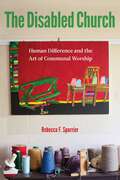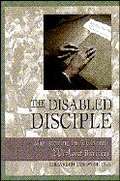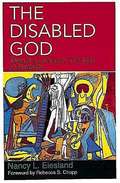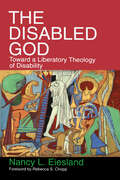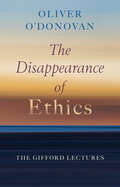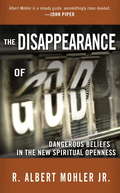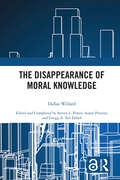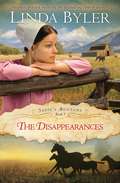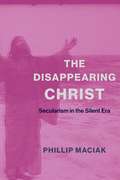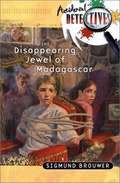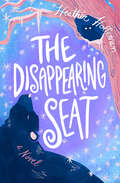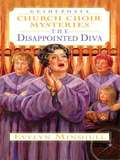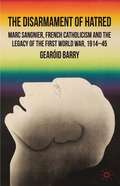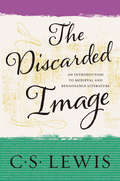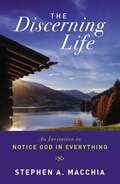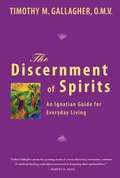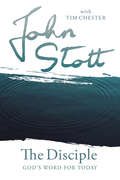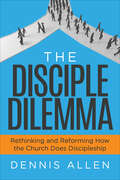- Table View
- List View
The Dinner Party: A Novel
by Brenda JanowitzIn Brenda Janowitz's The Dinner Party, long forgotten memories come to the surface. Old grievances play out. And Sylvia Gold has to learn how to let her family go. This Passover Seder is not just any Passover Seder. Yes, there will be a quick service and then a festive meal afterwards, but this night is different from all other nights. This will be the night the Golds of Greenwich meet the Rothschilds of New York City.The Rothschilds are the stuff of legends. They control banks, own vineyards in Napa, diamond mines in Africa, and even an organic farm somewhere in the Midwest that produces the most popular Romaine lettuce consumed in this country. And now, Sylvia Gold's daughter is dating one of them.When Sylvia finds out that her youngest of three is going to bring her new boyfriend to the Seder, she's giddy. When she finds out that his parents are coming, too, she darn near faints. Making a good impression is all she thinks about. Well, almost. She still has to consider her other daughter, Sarah, who'll be coming with her less than appropriate beau and his overly dramatic Italian mother. But the drama won't stop there. Because despite the food and the wine, despite the new linen and the fresh flowers, the holidays are about family.
The Diocese's Darkest Chapter: Cultural Trauma and the Making of the Catholic Abuse Crisis in America (Cultural Sociology)
by Allison NiebauerFrom its quiet inception in 1988, to a hailstorm of statewide and national controversy over thirty years later, this book follows the development of public discourse regarding a clergy sexual abuse scandal in a small Catholic Diocese in Central Pennsylvania. Weaving together the evolving local and national narratives, it offers a striking account of how stakeholder rhetoric has influenced public perception of the Catholic abuse crisis in America, and driven public actions. While the book enriches our local knowledge of the tragic--and ongoing--cultural trauma triggered by the revelation of clergy perpetrated abuse in a small Catholic Diocese, it also makes a critical theoretical contribution to our understanding of the role of rhetoric in publicizing private pain, and galvanizing collectives to take it on as their own. The process of cultural trauma, Niebauer contends, unfolds through rhetorical forms that provide individuals with a constraining and enabling set of rhetorical choices. Highlighting the recurrent rhetorical forms of narration, kategoria, apologia, and topoi, The Diocese's Darkest Chapter brings a new vocabulary and explanatory force to the study of cultural trauma, and the Catholic abuse crisis in America.
The Dios que yo amo: Memorias
by Joni Eareckson TadaPreparese para vivir una noce inolvidable desde la famosa Bombonera, con setenta mil jóvenes que colmaron el estadio Boquense. Un recorrido de las veitidós curzadas en todo el interior del país, culminando con la increible fiesta en Boca. Sorpresas, un mensjae titulado "Diagnóstico espiritual" que te dejará pensando y que va desde las risas hasta las lágrimas. En definitiva, un video para ver y compartir con los amigos. Irrepetible.
The Direct Path
by Andrew HarveyAndrew Harvey writes: 'I feel I have been waiting all my life to write this book, that it will represent the culmination and consummation of twenty-five years of seeking and inner experience and practice in many of the mystical systems of the world, and that there could not be a more important book for the contemporary seeker. As the times become more and more difficult and challenging, and the bankruptcy of all the inherited religions and mystical transmission systems becomes more and more starkly appa...
The Direction of Desire: John of the Cross, Jacques Lacan and the Contemporary Understanding of Spiritual Direction (The Palgrave Lacan Series)
by Mark Gerard MurphyThis book examines Lacanian psychoanalysis and Christian mystical theology demonstrating the former’s potential for reinvigorating spiritual direction. The author outlines how current methods of spiritual direction become saturated with self-help psycho-pop methodologies, and that desire has therefore been foreclosed in these practices. He suggests that the root of this is a focus on ‘positive affective experientialism’, which means spiritual direction must focus on emotional wholeness, healing and positivity. Finally, he argues that a new dialogue between John of the Cross (a mystic whose writings on spiritual direction formulate part of the core of the Catholic spiritual tradition) and Jacques Lacan can open the way for a spiritual direction beyond the confines of experientialism. The book concludes that we can only escape the experiential commodification of spiritual direction by critiquing the drive to experience in and of itself. This novel work will appeal in particular to students and scholars of psychoanalysis, religion, philosophy and critical theory.
The Dirks Escape
by C. Brandon RimmerA true story of a German family fleeing from the specter of the holocaust. This is the unforgettable story of a man running for his life--Herr Doktor Gerhard Dirks. There were many who were after him, the Nazis and the S.S., the Communists and the Volkpolizei. He made it to freedom in the West because of his courage and his brains.
The Dirty Little Secret: Uncovering the Truth Behind Porn
by Craig GrossAddiction to pornography has exploded to epidemic proportions, infiltrating churches and holding our pastors, friends, and family members prisoner. But no one—not even the church—is talking about this dangerous and destructive addiction. The Dirty Little Secret follows Pastor Craig Gross as he breaks the silence and begins his ministry XXXchurch.com, a website devoted to fighting pornography. As he meets people in the industry and those addicted to porn, Craig exposes the very real, human face of pornography and the destructive physical, emotional, and spiritual toll it takes. The Dirty Little Secret plainly reveals the addictive lure of pornography, explores the pain and brokenness it causes, and challenges us as individuals and as the church to talk about and openly fight pornography. Don’t be tempted to keep this secret any longer. If this book won't make you roll up your sleeves and get your hands dirty, then you need to check your pulse. —Skip Mathews, president, Integrity Online
The Disabled Church: Human Difference and the Art of Communal Worship
by Rebecca F. SpurrierHow do communities consent to difference? How do they recognize and create the space and time necessary for the differences and disabilities of those who constitute them? Christian congregations often make assumptions about the shared abilities, practices, and experiences that are necessary for communal worship. The author of this provocative new book takes a hard look at these assumptions through a detailed ethnographic study of an unusual religious community where more than half the congregants live with diagnoses of mental illness, many coming to the church from personal care homes or independent living facilities. Here, people’s participation in worship disrupts and extends the formal orders of worship. Whenever one worships God at Sacred Family Church, there is someone who is doing it differently.Here, the author argues, the central elements and the participation in the symbols of Christian worship raise questions rather than supply clear markers of unity, prompting the question, What do you need in order to have a church that assumes difference at its heart?Based on three years of ethnographic research, The Disabled Church describes how the Sacred Family community, comprising people with very different mental abilities, backgrounds, and resources, sustains and embodies a common religious identity. It explores how an ethic of difference is both helped and hindered by a church’s embodied theology. Paying careful attention to how these congregants improvise forms of access to a common liturgy, this book offers a groundbreaking theology of worship that engages both the fragility and beauty revealed by difference within the church. As liturgy requires consent to difference rather than coercion, an aesthetic approach to differences within Christian liturgy provides a frame for congregations and Christian liturgists to pay attention to the differences and disabilities of worshippers. This book creates a distinctive conversation between critical disability studies, liturgical aesthetics, and ethnographic theology, offering an original perspective on the relationship between beauty and disability within Christian communities. Here is a transformational theological aesthetics of Christian liturgy that prioritizes human difference and argues for the importance of the Disabled Church.
The Disabled Disciple: Ministering in a Church Without Barriers
by Elizabeth J. BrowneElizabeth Browne, a doctor of theology explores how the bible represents people with disabilities and how the church represents people with disabilities. Good book for ministers, or just people interested in Christianity who are blind or disabled.
The Disabled God: Toward A Liberatory Theology Of Disability
by Nancy L. EieslandDraws on themes of the disability-rights movement to identify people with disabilities as members of a socially disadvantaged minority group rather than as individuals who need to adjust. Highlights the hidden history of people with disabilities in church and society. Proclaiming the emancipatory presence of the disabled God, the author maintains the vital importance of the relationship between Christology and social change. Eiesland contends that in the Eucharist, Christians encounter the disabled God and may participate in new imaginations of wholeness and new embodiments of justice.
The Disabled God: Toward a Liberatory Theology of Disability
by Nancy L. EieslandDraws on themes of the disability-rights movement to identify people with disabilities as members of a socially disadvantaged minority group rather than as individuals who need to adjust. Highlights the hidden history of people with disabilities in church and society. Proclaiming the emancipatory presence of the disabled God, the author maintains the vital importance of the relationship between Christology and social change. Eiesland contends that in the Eucharist, Christians encounter the disabled God and may participate in new imaginations of wholeness and new embodiments of justice.
The Disappearance of Ethics: The Gifford Lectures
by Oliver O'DonovanThe capstone lectures of esteemed ethicist Oliver O&’Donovan What is the future of ethics? Oliver O&’Donovan addresses a discipline in crisis in The Disappearance of Ethics. Based on the 2021 Gifford Lectures, this book contends that contemporary ethics has lost its object (good), frontier (time), and agent (person). O&’Donovan traces the development of these concepts from Greek philosophy through early Christianity, the Enlightenment, and into the modern era. Engaging with a range of thinkers including Aristotle, Augustine of Hippo, Max Scheler, Karl Barth, and more, O&’Donovan shows how ethics has lost its heart and how the field can regain its purpose. He completes his lectures by integrating theology and philosophy to recover ethics. Contemplating theological concepts such as creation, divine law, and justification undergirds ethics by generating &“existential wonder.&” With characteristic warmth and scholarly precision, O&’Donovan reinvigorates ethical argument with theological insight. Scholars and students of Christian ethics will find his lectures equally provocative and inspiring.
The Disappearance of God: Dangerous Beliefs in the New Spiritual Openness
by R. Albert Mohler"Great biblical truths are meant not only for our intellectual acceptance, but for our spiritual health." -Dr. Al Mohler. More faulty information about God swirls around us today than ever before. No wonder so many followers of Christ are unsure of what they really believe in the face of the new spiritual openness attempting to alter unchanging truth. For centuries the church has taught and guarded the core Christian beliefs that make up the essential foundations of the faith. But in our postmodern age, sloppy teaching and outright lies create rampant confusion, and many Christians are free-falling for "feel-good" theology. We need to know the truth to save ourselves from errors that will derail our faith. As biblical scholar, author, and president of The Southern Baptist Theological Seminary, Dr. Albert Mohler, writes, "The entire structure of Christian truth is now under attack." With wit and wisdom he tackles the most important aspects of these modern issues: Is God changing His mind about sin? Why is hell off limits for many pastors? What's good or bad about the "dangerous" emergent movement? Have Christians stopped seeing God as God? Is the social justice movement misguided? Could the role of beauty be critical to our theology? Is liberal faith any less destructive than atheism? Are churches pandering to their members to survive? In the age-old battle to preserve the foundations of faith, it's up to a new generation to confront and disarm the contemporary shams and fight for the truth. Dr. Mohler provides the scriptural answers to show you how.
The Disappearance of Moral Knowledge
by Dallas WillardBased on an unfinished manuscript by the late philosopher Dallas Willard, this book makes the case that the 20th century saw a massive shift in Western beliefs and attitudes concerning the possibility of moral knowledge, such that knowledge of the moral life and of its conduct is no longer routinely available from the social institutions long thought to be responsible for it. In this sense, moral knowledge—as a publicly available resource for living—has disappeared. Via a detailed survey of main developments in ethical theory from the late 19th through the late 20th centuries, Willard explains philosophy’s role in this shift. In pointing out the shortcomings of these developments, he shows that the shift was not the result of rational argument or discovery, but largely of arational social forces—in other words, there was no good reason for moral knowledge to have disappeared.The Disappearance of Moral Knowledge is a unique contribution to the literature on the history of ethics and social morality. Its review of historical work on moral knowledge covers a wide range of thinkers including T.H Green, G.E Moore, Charles L. Stevenson, John Rawls, and Alasdair MacIntyre. But, most importantly, it concludes with a novel proposal for how we might reclaim moral knowledge that is inspired by the phenomenological approach of Knud Logstrup and Emmanuel Levinas. Edited and eventually completed by three of Willard’s former graduate students, this book marks the culmination of Willard’s project to find a secure basis in knowledge for the moral life.
The Disappearances: Another Spirited Novel By The Bestselling Amish Author! (Sadie's Montana #3)
by Linda BylerSadie may be married now, but she's as spirited as ever, and her life is no less tame. In fact, soon after she and Mark are settled into the farmhouse which Mark is renovating, she's visited by three FBI agents who question her about the two children who mysteriously appeared one day at the Ranch. Before the agents leave, they warn Sadie that her beloved horse, Paris, is highly valuable, and that she and Mark may be in grave danger because of Paris. This news, on top of Mark's unexpected black moods, leaves Sadie sometimes wishing she could go home, "lay her head on Mam's shoulder, and ask why she hadn't warned her. " But when Sadie is kidnapped at gunpoint by two men in ski masks, her stubborn strength is tested beyond her imagining. Mark disappears emotionally without warning. Now Sadie has disappeared, leaving Mark and her family wracked with worry. And Anna, Sadie's youngest sister, desperate for Neil Hershberger's attention, refuses to eat, plagued by an eating disorder as she fades away. And yet, Mark's younger brother Timothy appears, bringing unexpected life and hope to the family. Mercifully, healing and courage reappear in unexpected times and places in this concluding volume of the Sadie's Montana series.
The Disappearing Christ: Secularism in the Silent Era
by Phil MaciakAt the turn of the twentieth century, American popular culture was booming with opportunities to see Jesus Christ. From the modernized eyewitness gospel of Ben-Hur to the widely circulated passion play films of Edison, Lumière, and Pathé; from D. W. Griffith’s conjuration of a spectral white savior in Birth of a Nation to W. E. B. Du Bois’s “Black Christ” story cycle, Jesus was constantly and inventively visualized across media, and especially in the new medium of film. Why, in an era traditionally defined by the triumph of secular ideologies and institutions, were so many artists rushing to film Christ’s miracles and use his story and image to contextualize their experiences of modernity?In The Disappearing Christ, Phillip Maciak examines filmic depictions of Jesus to argue that cinema developed as a model technology of secularism, training viewers for belief in a secular age. Negotiating between the magic trick and the documentary image, the conflicting impulses of faith and skepticism, the emerging aesthetic of film in this period visualized the fraught process of secularization. Cinematic depictions of an appearing and disappearing Christ became a powerful vehicle for Americans to navigate a rapidly modernizing society. Studying these films alongside a multimedia, interdisciplinary archive of novels, photographs, illustrations, and works of theology, travel writing, and historiography, The Disappearing Christ offers a new narrative of American cultural history at the intersection of cinema studies and religious studies.
The Disappearing Jewel of Madagascar
by Sigmund BrouwerFriends Become Strangers, and Strangers Become Friends.... When Ricky Kidd first hears about the curse of the Jewel of Madagascar, he is pretty sure he doesn't believe in it. But almost immediately, strange things start happening. First he knocks over a statue that crushes part of Mrs. McEwan's antique jewelry collection. Ricky is convinced his life is over--paying off the debt will take years! As if that weren't bad enough, all of his friends seem to be deliberately avoiding him. And then there is Mrs. McEwan's mysterious nephew--Ricky is sure he is not who he seems. Can the curse be coming true? As Ricky struggles to make sense of everything, he learns the importance of friends, trust, and loyalty. WHO IS STEALING MRS. MCEWAN'S JEWELRY? WHY ARE RALPHY AND MIKE AVOIDING RICKY? WHAT ON EARTH DOES EATING WORMS HAVE TO DO WITH ANYTHING?
The Disappearing Seat: Elita Brown Book #2 (The Elita Brown Series)
by Heather HollemanBook 2 in the Elita Brown series.December normally brings joy to Elita Brown&’s heart with the coziness of winter and the anticipation of Christmas. But when Elita compares her life to others, her best friends seem to have it so much better. Margo hosts a fancy holiday dinner party; Joy discovers a hibernating bear on her family&’s property, and Stephen shares his love of football with Joy. Even her little sister Cally has a seemingly perfect life with a special role in The Nutcracker. Every day, Elita grows more and more jealous.To make matters worse, the principal of Siler Middle School insists on a school-wide speech competition. Can Elita get over her fear of public speaking? How can her jealous heart heal? And where is her mentor Mrs. Burgley when she needs her most of all?In The Disappearing Seat, Elita discovers the secret to savoring the good gifts all around her. Through the wisdom revealed in nature and a loving spiritual mentor, Elita learns what it means to have access to the riches of God&’s kingdom and how to enjoy the beautiful life God has given her. Readers will delight in what they learn about the bears, owls, and the frozen vernal ponds in the Pennsylvania forest (which all become symbols of Elita&’s spiritual growth). With great discussion questions included, this book helps young readers on their journey with Jesus.
The Disappointed Diva (Church Choir Mysteries #23)
by Evelyn MinshullThis is book 23 in the Church Choir Mysteries series.
The Disarmament of Hatred: Marc Sangnier, French Catholicism and the Legacy of the First World War, 1914–45
by Gearóid BarryDocumenting an audacious Franco-German movement for moral disarmament, instigated in 1921 by war veteran and French Catholic politician Marc Sangnier, in this transnational study Gearóid Barry examines the European resonance of Sangnier's Peace Congresses and their political and religious ecumenism within France in the era of two World Wars.
The Discarded Image: An Introduction to Medieval and Renaissance Literature
by C. S. LewisIn The Discarded Image, C.S. Lewis paints a lucid picture of the medieval world view, providing the historical and cultural background to the literature of the Middle Ages and Renaissance. It describes the "image" discarded by later years as "the medieval synthesis itself, the whole organization of their theology, science and history into a single, complex, harmonious mental model of the universe." This, Lewis's last book, has been hailed as "the final memorial to the work of a great scholar and teacher and a wise and noble mind."
The Discerning Life: An Invitation to Notice God in Everything
by Stephen MacchiaSpiritual discernment is a key theme in the Scriptures. From the Garden when Adam and Eve turned away from the simplest terms of a relationship with God, to the Garden when John the Apostle wrote the book of Revelation to a distracted people anticipating eternity, discerning God has been the heart of the matter. In modern times, however, we have forgotten the basic premise of practicing a preference for God, out of which we then are invited to live for God. Instead, we have implanted strategic planning, head-to-head battling, and will-of-God knowing in its place. In The Discerning Life, Stephen A. Macchia seeks to upend the one-eyed and limited Christian understandings of spiritual discernment and invite readers and leaders to reconsider how they prioritize the care of their souls, the grace of their communities, and the mission of their lives, churches, and organizations. When we have a fuller understanding of how spiritual discernment matters to the whole of our lives, we will in turn encourage others to follow likewise and then lean fully into the mission, mandate, and message of the whole counsel of God.
The Discernment of Spirits: An Ignatian Guide for Everyday Living
by Timothy M. GallagherSt. Ignatius Loyola, founder of the Jesuits, is one of the most influential spiritual leaders of all time, yet many readers find his Rules for Discernment hard to understand. What can Ignatius teach us about the discernment of spirits that lies at the very heart of Christian life? In The Discernment of Spirits, Fr. Timothy Gallagher, a talented teacher, retreat leader, and scholar, helps us understand the Rules and how their insights are essential for our spiritual growth today. By integrating the Rules and the experience of contemporary people, Gallagher shows the precision, clarity, and insight of Ignatius's Rules, as well as the relevance of his thought for spiritual life today. When we learn to read Ignatius correctly, we discover in his remarkable words our own struggles, joys, and triumphs. This book is for all who desire greater awareness of God's action in their daily spiritual lives, and is essential reading for retreat directors, spiritual directors, priests, and counselors.
The Disciple (God's Word for Today #Volume 2)
by John StottHow can Christians effectively engage today's world while staying true to Scripture?andThe Contemporary ChristianThe Disciple
The Disciple Dilemma: Rethinking and Reforming How the Church Does Discipleship
by Dennis AllenThe Disciple Dilemma explains the realities and limitations of using classic business logic and strategy within the Christian community and makes the case that Christian leaders must restructure their organizations to conform to Christ’s mission.
